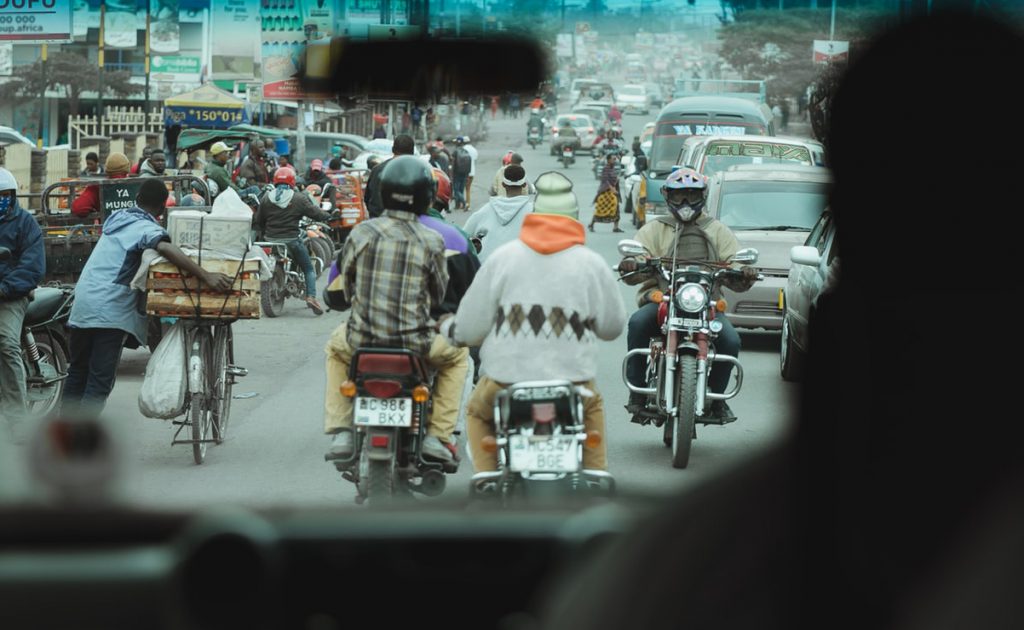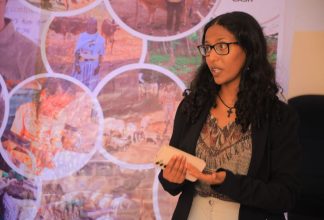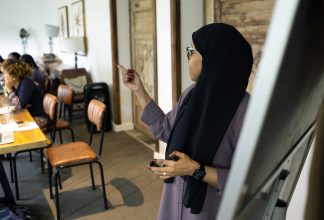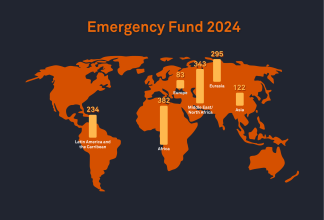Tanzanian LGBTI+ Activist: “You Should Not Be Punished Because of Who You Love”

This time last year, the world’s eyes turned to Tanzania as the regional commissioner of Dar es Salaam announced plans of establishing a task force to hunt down and punish LGBTI+ people. While the government later denied any existence of the plan, fear of persecution led many within the LGBTI+ community to flee the country or go into hiding. Since then, Tanzania has faded from the global spotlight, but LGBTI+ people remain victims of systemic oppression.
One year later, Civil Rights Defenders met with one of the country’s young LGBTI+ activists. He leads a Tanzanian human rights organisation focusing on protecting and promoting the rights of LGBTI+ people. He described an environment of severe homophobia.
“The Tanzanian government is very much against the LGBT movement, and it also targets individuals. There have been several incidents of violence and attacks since the current government came into power. This has influenced the society at large, and the level of hate that is directed to the very existence of LGBT persons and the community is high,” he said during our interview.
The young activist has seen first-hand what it is like to receive threats and be subjected to harassment based on sexual orientation. As a frontline LGBTI+ activist and human rights defender, his security situation is precarious, and we choose not to reveal his name in this article.
“Report them to me”
“I am announcing this to every citizen of Dar es Salaam. If you know any gays, report them to me,” said Paul Makonda, regional commissioner of Dar es Salaam, during a press conference with local reporters in late October 2018.
The highlighted crackdown that reached Tanzania after the statement led to increased attacks against LGBTI+ people. The goal, Paul Makonda said, was to arrest as many as possible and send them to prison for a long time.
While the Tanzanian foreign ministry later claimed that this was not an official government position, no measures were taken to ensure the safety and security of LGBTI+ people.
In our recent meeting with the young LGBTI+ activist, he described how this type of statements often spur homophobia in the country. Similar agitations can affect the mindset not only of authorities, but also of ordinary citizens.
“This was not the first time a statement like this was made in Tanzania, but of course it affects us all the same. Making a statement like this is almost like giving others permission to harm the LGBT community – not only by reporting to the police, but also by using violence or take other actions,” he said.
He adds that it is important to note that the consequences of these kind of statements are widespread and affect the country as a whole.
“One example is that whatever happens in the mainland of Tanzania have grave consequences also in Zanzibar, where LGBT people are arrested and evicted, as well as harassed by their communities and rejected by their families”.
Colonial-era Laws Continue to Affect the LGBTI+ Community
Several countries in the region are still governed by colonial-era laws that criminalise homosexuality with up 30 years in prison. In neighbouring Uganda, discussions on introducing death penalty recently flared up again.
“It is not criminal to be gay in Tanzania, but same sex acts are criminalised. These things are difficult for people to separate, and people’s understanding of being gay is that it is criminal. This means that we have a major challenge when it comes to changing mentality,” said the activist during our meeting.
Vastly controlled by the state, also the media is often used as a tool of oppression. Affecting public opinion, this poses a great challenge for the LGBTI+ community.
“The media often spread negative things about the LGBT community, and sometimes also target individuals. Maybe it has to do with a lack of understanding, or maybe they just want to sell more newspapers. Either way, this has been a challenge for the movement”.
Many have had their picture or name, along with a note on their sexual orientation, outed in newspapers, podcasts and National Television.
“Being outed in the media poses great risks to the individual. If everyone knows your face, the situation will definitely become difficult. This often leads that person to seek support or asylum somewhere else, outside of Tanzania. They must leave for their own safety and security, basically fleeing for their life,” the activist continued.
“You should not be punished because of who you love”
Since president Magufuli came into power in 2015, no measures to improve the situation for LGBTI+ people have been taken. Instead, the government’s crackdown includes shutting down civil society organisations working to protect human rights and LGBTI+ rights.
“For us as an organisation, this has been notable. We have for example been evicted from our office, which affects our work. Individuals are also affected, many have been forced to leave their homes for no good reason, because the landlord realised that the tenant is gay”, said the activist.
He believes that international support is important, but that change needs to come from within the Tanzanian society first.
“A lot needs to be done at local level. Support must come from families, colleagues, and the society at large. Then maybe, somehow, others will also start to accept that we are part of the same community – that we are also citizens of Tanzania. And we have rights just like other people have rights.”
While change might seem a long way away, the members of the Tanzanian-based human rights organisation remain determined to keep fighting, so that others will have a chance of a better life.
“I simply do not want others to go through what I personally have gone through. That is what motivates me. I hate seeing my community struggle because of who they are and who they love. So, whatever happens, I will still have enough hope that I can do at least something that can help my community,” he continued.


